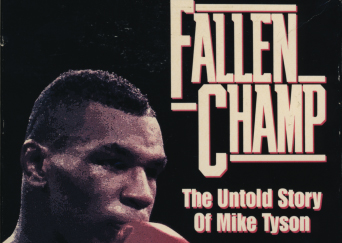When FALLEN CHAMP first appeared in 1993, director Barbara Kopple won both the Emmy and DGA award, but the film has rarely been screened since then. Now with the upcoming release of James Toback’s film TYSON, the time is right to look back on Kopple’s achievement at covering the subject from multiple perspectives.
Here’s what Ken Tucker of Entertainment Weekly had to say about the film at the time of its release:
“FALLEN CHAMP is organized around the central question of Mike Tyson’s life: How, wonders director Barbara Kopple, could the heavyweight-champion boxer, a gifted athlete by any measure, end up wasting the best years of his career in jail, convicted of rape last year at the age of 25? Kopple is an intriguing person to do such wondering. The Academy-Award winning director of 1991’s AMERICAN DREAM, a documentary about the Hormel meat company’s labor strike, she’s no jaded sports journalist or tabloid headline chaser. Her earlier work had demonstrated an understanding of the difficulties of working-class lives pushed into extreme situations, which helps a lot when you are tackling a subject as rough-and-tumble as Tyson.
FALLEN CHAMP tells the story at a brisk chronological pace; Kopple didn’t interview Tyson, but she has filmed scores of conversations of people surrounding the fighter through every period of his life and has assembled a remarkable amount of rarely seen footage-old training films, home movies, various media interviews with Tyson.
Kopple’s taped chats with the boxer’s boyhood friends in Brooklyn reveal that as a kid growing up strong and poor, Tyson ran with pals who mugged and robbed people. ‘It was so exciting!’ says Tyson in a startlingly cheerful, frank film clip. A chorus of voices testified to Tyson’s weaknesses and complexities. ‘He was cocky and shy at the same time”, says Ernestine Coleman, Tyson’s caseworker after his law breaking landed him in New York’s Tyron School for Boys. ‘He’s easily mislead,’ says one of his first boxing trainers, Teddy Atlas. ‘He needs love. He needs confidence.’
By all accounts the turning point in Tyson’s life was his relationship with his first manager, veteran fight trainer Cus D’Amato, who became a father figure to Tyson. D’Amato groomed his young charge for boxing stardom and kept him in line, and when D’Amato died in 1985, the structure and hope in Tyson’s life seemed to die as well. This once idealistic athlete is shown in a 1988 interview muttering, ‘People basically suck – they’re always trying to screw you.’
CHAMP details the way Tyson’s life fell apart even as he achieved greatest professional success….”
Visit the film’s website: www.cabincreekfilms.com/tv_fallenchamp.html






